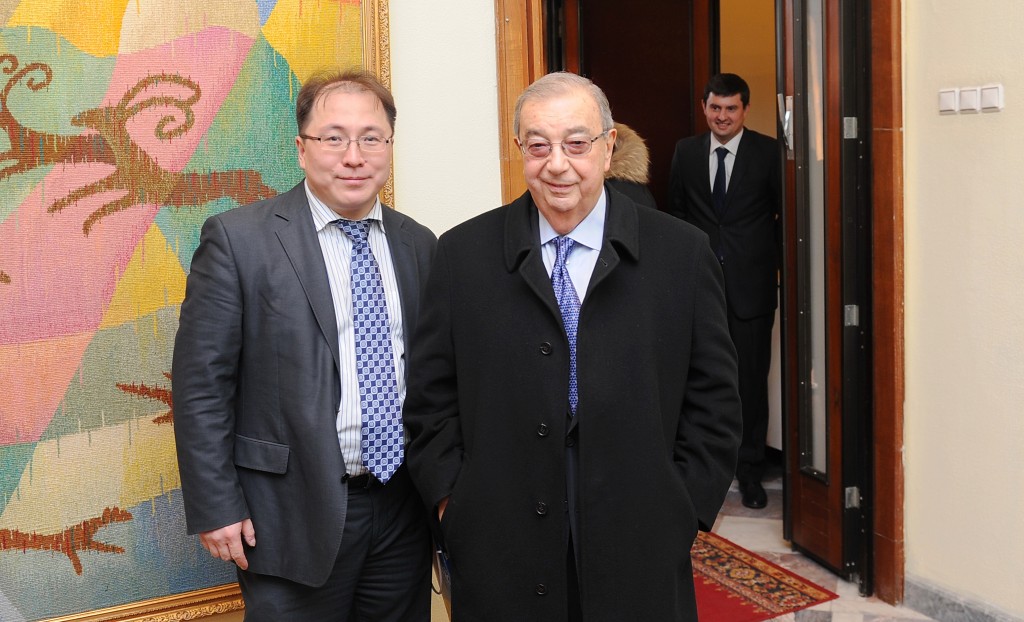At the end of June in Moscow, people bid final farewell to Yevgeny Maksimovich Primakov, a prominent Russian politician of global significance and scholar with colossal credibility in the Russian community and international arena who died June 26.
“The peacemaking activity of Yevgeny Maksimovich Primakov brought him true respect in many countries,” noted Kazakh President Nursultan Nazarbayev in his letter extending condolences on behalf of the people of Kazakhstan and his own behalf to all Primakov’s relatives and friends.
Due to his work, Primakov was one of the more secret people of the former Soviet Union. He started as a journalist, then became director of the Institute of World Economy and International Relations, which prepared classified reports for the leadership of the country during the Soviet period. During the change of eras, he was sent by Mikhail Gorbachev and Boris Yeltsin to the Foreign Intelligence Service and later to the Ministry of Foreign Affairs. Afterwards, being the Prime Minister, Primakov had the task to save the country from the default of 1998 and he, an unprofessional economist, managed to do it.
Primakov can be easily called a developer and an active researcher of a new area of analytical work in international relations with direct translation into policy – situation analysis, which made it possible to forecast and preempt the emergence of various military, political and economic situations, including during conflict flare-ups in different regions of the planet.
Primakov left a great artistic heritage in the form of numerous monographs and memoires, each of which can be considered as a handbook, especially for international relations specialists. These books have been translated into 14 languages. They are a kind of crib notes for young diplomats, where one can find an answer on an issue in the modern international relations system after rereading them from time to time.
A couple of years ago during his visit to our embassy in Moscow, I approached Primakov with one of these books, indicatively titled “The Minefield of Politics,” asking for an autograph. Having heard my name, Primakov with a warm, fatherly smile said, “My son-in-law has the same name,” and signed the book wishing all the best.
We had a brief conversation, during which I asked, “What do you think about the implementation of the Kazakhstan 2050 Strategy?” and my question was responded briefly, but at the same time exhaustively. Primakov described Kazakhstan as one of the fastest growing world economies which has all the conditions to be among leaders. “To this end,” he said, “your country has all the conditions” and in particular Primakov named, “first, its political leader; second, intellectual capacity accumulated in Kazakhstan’s society and finally, availability of mineral resources in Kazakhstan.”
“I think Kazakhstan is capable of handling everything,” summarised the maestro of world politics.
Despite the advanced years, Primakov was, as it is called, in a good creative and intellectual form. Just a couple of months ago, the shelves were hit by another of his books entitled “Meetings at the Crossroads,” where besides recollections, Primakov published his poems written in different years.
One of them, as if reflecting Primakov’s nature which we used to see, reads:
“…I am quashing in myself a slave, and working in three shifts,
However, I am the same in actions and in deeds.”
In one of his latest interviews when he was asked “about the life spent,” Primakov admitted, “Of course, I didn’t go against the fate, but it guided me. As for the assessment of all; well, if all of this is nearing the end, I must say that I lived well.”
The author is the editor-in-chief of the Diplomatic Herald magazine and president of the Association of Sports Journalists of Kazakhstan.

